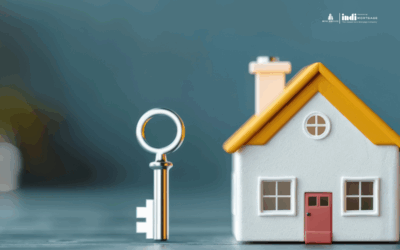Welcome To Our Mortgage Educational Blog About:
Buying a house for the first time? Here’s what to know.

It’s time to buy your first house, but you have no idea where to start! There are so many different factors involved in the home buying process; you don’t know where to begin. You may have heard that buying a house for the first time in Canada can be complex.
From getting approved for a mortgage to understanding the home buying process and how to find the right home at the right price – but it doesn’t have to be that way! With that being said, it’s important to be prepared and know what you’re getting into so that you can make the right decision without getting yourself into trouble later down the road.
This guide will walk you through everything you need to know about buying your first house in Edmonton, or Canada.
How long will the First Time Homebuying process take?
Unfortunately, there’s no way of knowing exactly how long it will take until after you’ve applied. Canada Mortgage and Housing Corporation (CMHC) requires that all home buyers go through a mortgage pre-approval process designed to determine if they qualify financially by buying a house.
Your real estate agent can start helping you with your home search as soon as possible once they have your pre-approval letter in hand. Start looking right away so that by the time you find your dream home, CMHC will be ready for your application!
What costs should I expect when buying my first home?
The highest costs will come from closing and moving. Depending on where you live, there might be additional or higher fees for utility hookups. We can’t give a specific figure because these vary wildly by location, but be sure to account for these if they apply.
You can use an online mortgage calculator as a starting point or talk with your real estate agent about average costs in your area. If closing costs are high, try getting at least an estimate of them so that you’ll have some idea of what will be due when it comes time to buying a house.
Some of the costs include:
Down Payment
It may not be as easy as it seems, but in most cases, homebuyers have to put down 5% of a property’s price as a down payment. For example, if your mortgage is $200,000, you’ll need about $10,000 of your own cash for that purchase.
Legal Fees
An attorney can help ensure all of your paperwork is in order and easy for lenders to read without requiring additional information that can delay financing and closing.
Otherwise, if there are problems with your loan or if your lender decides that they don’t like something about how you’re buying a house, they can take away your home and leave you high and dry.
Property Taxes
Understanding how often and by how much they change can help set realistic expectations about saving up for the down payment and mortgage payments.
Insurance Costs
Other insurance-related expenses should factor into your house buying budget as well. As with most aspects of homeownership, there isn’t one right answer to “How much does homeowners insurance cost?” But knowing all you can about these different costs and being aware of them in advance will help ensure that your budget won’t blow up later on.
What else should I know about when buying my first home?
Do I have enough savings saved up?
Buying a house can be expensive, especially if it’s your first time doing so. Before signing on that dotted line, make sure that you have enough money saved up. Depending on where you live, minimum down payments and mortgage insurance requirements differ across Canada.
Look into your local real estate rules so that you have enough saved up. You might want to consider consulting with a financial advisor as well. But, even if there are economic hardships and you cannot pay the mortgage (later on), there are still options you can consider
Is my credit score good enough?
Your credit score is calculated based on several different factors, but ultimately it boils down to your ability (or inability) to pay back loans and bills. Before taking out any sort of loan, check your credit score; it might give you an idea of how much money you can borrow and with what terms.
If there are any errors or inaccuracies on your report, be sure to dispute them immediately; don’t wait until after you’ve applied for a mortgage for buying a house or car loan.
Can I get pre-approved for a mortgage?
As we mentioned earlier, you should get pre-approved for a mortgage before looking at houses. A pre-approval is different from getting a loan commitment—it’s simply telling you that you could get a loan based on your income and financial information if needed.
Getting pre-approved gives you negotiating power when making an offer on a house because it helps establish how much of an interest rate and closing costs (and other fees) you can afford.
It also shows sellers that you are serious about buying their home—which can put them in less of an ask mood than someone who hasn’t done their homework. However, it’s best to consult with a broker to help you with different Canadian mortgage regulations (stress-testing)
Find Mortgage Experts for professional help.
The mortgage approval process can be long and arduous, especially if it’s your first go-around. If you don’t yet have a team of professionals on your side, there are numerous mortgage experts out there who can help walk you through every step of buying a house for the first time.
Use their expertise and save yourself from months of sleepless nights (as well as debt) in one fell swoop. Be sure to look at several different options before making any decision—for example, take advantage of free quotes from multiple professionals to see who can offer you rates that will fit into your budget. Or meet with several different professionals in person or on video chat so that they each answer any questions you might have about buying a home. If you need more information about the topic or any other questions about home buying mortgages, don’t hesitate to contact us.
View our First Time Homebuyers page here: www.sandraforscutt.ca/services/first-time-homebuyer-edmonton/
Recent Educational Blogs
Thinking About Flipping a House in Edmonton?
May 2025 | Flip Mortgage ProgramAre you eyeing that “fixer-upper” in Edmonton and dreaming of turning it into a showstopper? House flipping is more popular than ever, and with the right mortgage program, it’s easier to get started than you might think!What is a Flip...
Unlocking the Value in Your Home
April 2025 | Home Equity Unlocking the value in your home can be a smart way to fund major renovations or get a handle on high-interest debt. If you’ve built up equity—the difference between your home’s current value and what you still owe on your mortgage—you may be...
To Refinance or Not to Refinance: Navigating Mortgage Renewal in 2025
March 2025 | To Refinance or Not to RefinanceAs mortgage renewal season approaches, many homeowners are grappling with a critical question: Should I refinance my mortgage? With interest rates higher than what many locked in years ago and looming financial pressures...



